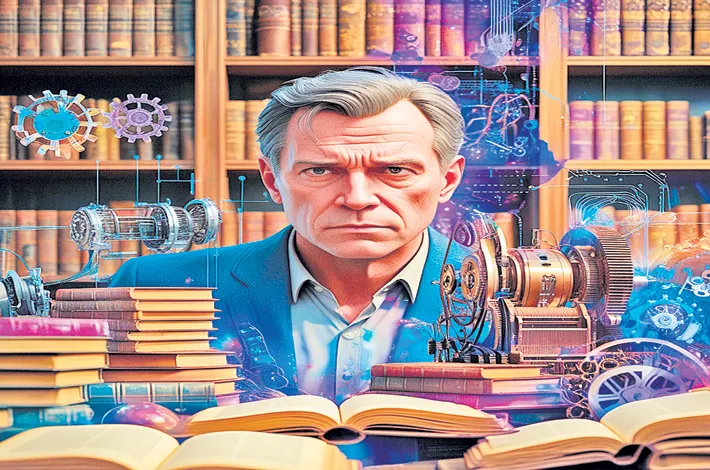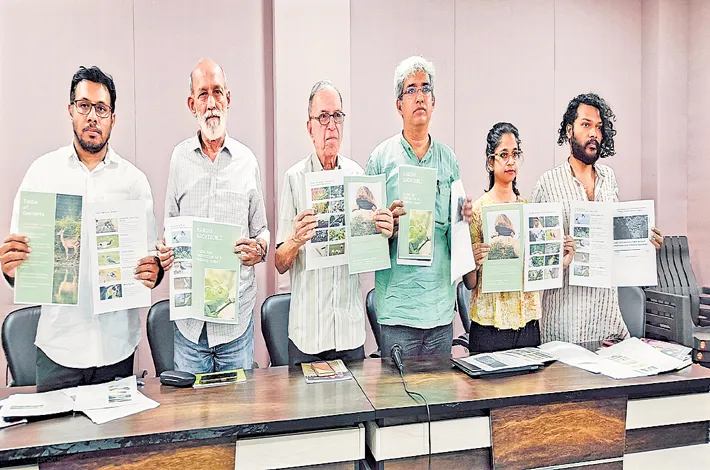The Importance of Self-Learning in a Rapidly Evolving World
30-03-2025 12:00:00 AM

In an era defined by rapid technological advancements, global connectivity, and an ever-expanding pool of knowledge, the ability to self-learn has emerged as one of the most valuable skills a person can possess. Self-learning, or the process of acquiring knowledge and skills independently without formal instruction, empowers individuals to adapt, grow, and thrive in a world where traditional education systems alone are no longer sufficient. From personal development to professional success, self-learning offers a pathway to resilience, creativity, and lifelong fulfillment.
Adapting to a Changing Landscape
The pace of change in the 21st century is unprecedented. Industries are being reshaped by artificial intelligence, automation, and digital innovation, rendering many once-stable careers obsolete while creating new opportunities that demand novel skill sets. Formal education, while foundational, often struggles to keep up with this velocity. Curricula can take years to update, and by the time a student graduates, the knowledge they’ve acquired may already be outdated. Self-learning bridges this gap, allowing individuals to stay ahead of the curve by seeking out the latest information, tools, and techniques relevant to their goals.
For example, consider the rise of software development and data science. Many of today’s leading professionals in these fields didn’t learn their craft solely through university degrees but through online tutorials, open-source projects, and experimentation. Platforms like GitHub, YouTube, and Coursera have democratized access to knowledge, enabling anyone with curiosity and discipline to master complex subjects. This adaptability is a hallmark of self-learning—it equips people to pivot when industries shift, ensuring they remain relevant and competitive.
Fostering Personal Empowerment
Beyond its practical benefits, self-learning cultivates a profound sense of agency. When individuals take ownership of their education, they break free from the constraints of external validation or rigid structures. They decide what to learn, how to learn it, and why it matters to them. This autonomy builds confidence and resilience, as learners come to see challenges not as insurmountable obstacles but as opportunities to grow.
Take the story of someone teaching themselves a new language. Without a classroom or teacher, they might use apps like Duolingo, watch foreign films, or practice with native speakers online. Each step forward—whether mastering a tricky verb conjugation or holding a basic conversation—reinforces their belief in their own capabilities. This self-driven progress spills over into other areas of life, fostering a mindset that embraces problem-solving and perseverance.
Unlocking Creativity and Innovation
Self-learning also nurtures creativity, a trait increasingly prized in a world where rote tasks are automated, and human ingenuity drives progress. Unlike structured education, which often follows a linear path, self-learning is inherently flexible. Learners can explore tangents, connect seemingly unrelated ideas, and tailor their journey to their unique interests. This freedom fosters innovative thinking, as individuals aren’t bound by a syllabus or a teacher’s expectations.
History is replete with examples of self-learners who changed the world through their curiosity. Benjamin Franklin, a polymath and inventor, had little formal schooling but devoured books and conducted experiments that led to groundbreaking discoveries, like the nature of electricity. In a modern context, entrepreneurs like Elon Musk have credited their success to voracious reading and hands-on exploration. Self-learning allows people to ask “what if?” and pursue answers without fear of failure, laying the groundwork for breakthroughs that formal systems might overlook.
Building a Lifelong Habit
Perhaps the greatest gift of self-learning is its sustainability. Unlike traditional education, which often ends with a diploma, self-learning is a lifelong endeavor. It transforms learning from a finite task into a habit, one that enriches both the mind and soul. In a world where knowledge doubles every few years, those who stop learning risk stagnation. Self-learners, by contrast, remain agile, curious, and engaged, no matter their age or circumstances.
This habit also promotes mental well-being. Studies suggest that intellectual stimulation—whether through reading, solving puzzles, or mastering a new skill—can enhance cognitive function and delay age-related decline. Self-learning becomes a source of joy and purpose, offering a way to explore passions that formal education might have sidelined. Whether it’s picking up woodworking, studying astronomy, or diving into philosophy, the self-learner finds fulfillment in the act of discovery itself.
Overcoming Challenges
Of course, self-learning isn’t without its hurdles. It requires discipline, time management, and the ability to sift through vast amounts of information to find what’s credible and useful. Without a teacher’s guidance, learners must develop critical thinking to evaluate sources and avoid misinformation. Yet these challenges are also strengths in disguise. Overcoming them builds not just knowledge but character—teaching patience, discernment, and grit.
The Future Belongs to the Self-Learner
As we move further into 2025 and beyond, the importance of self-learning will only grow. The boundaries between disciplines are blurring, and the problems we face—climate change, technological ethics, global health—demand interdisciplinary solutions from adaptable minds. Employers increasingly value skills over credentials, and individuals who can demonstrate initiative and expertise through self-directed efforts will stand out.
In the end, self-learning is more than a tool for survival; it’s a mindset that celebrates human potential. It reminds us that knowledge is not confined to classrooms or textbooks but is a living, breathing pursuit available to anyone willing to seek it. By embracing self-learning, we don’t just prepare for the future—we shape it, one lesson at a time.








